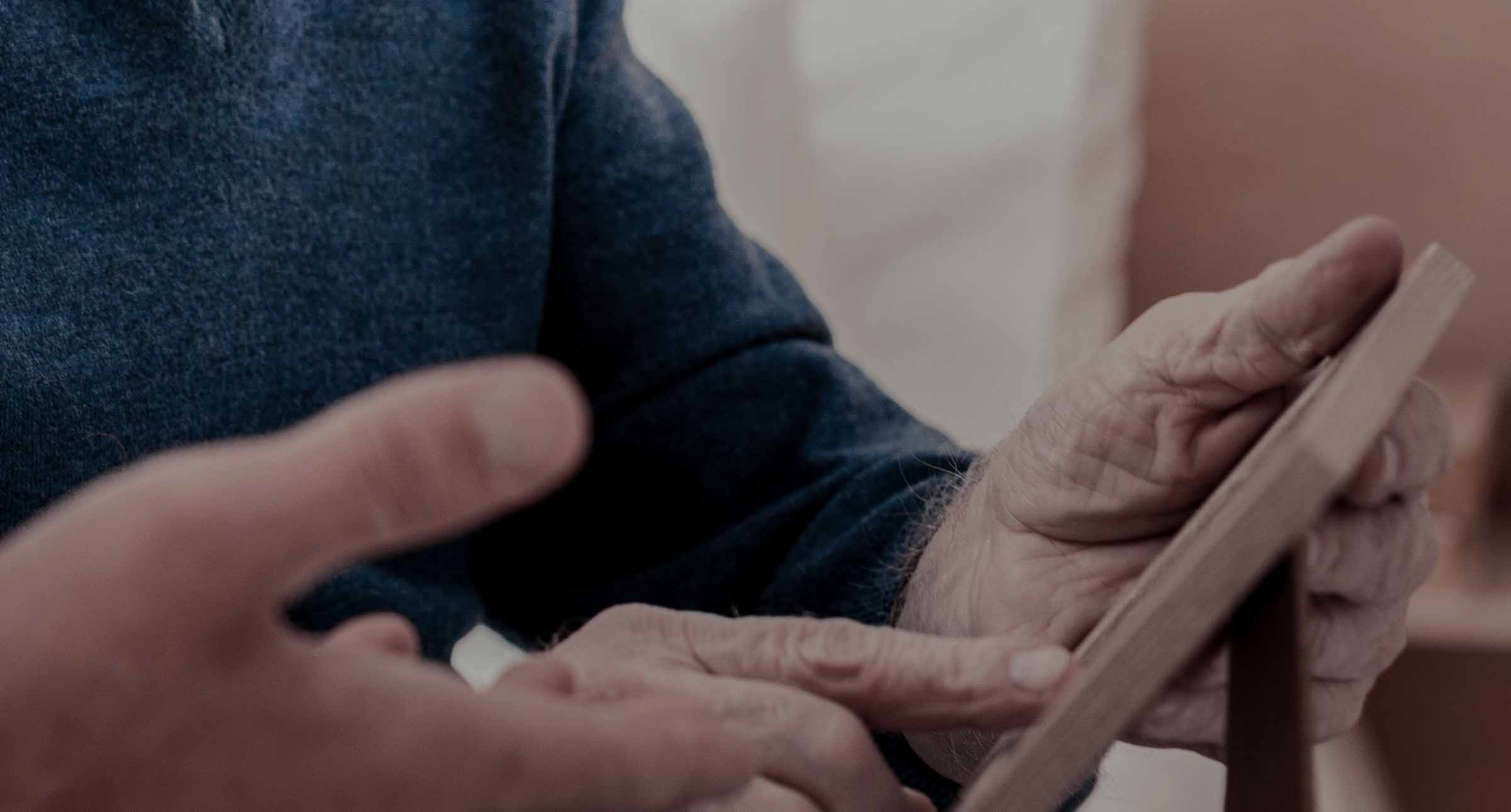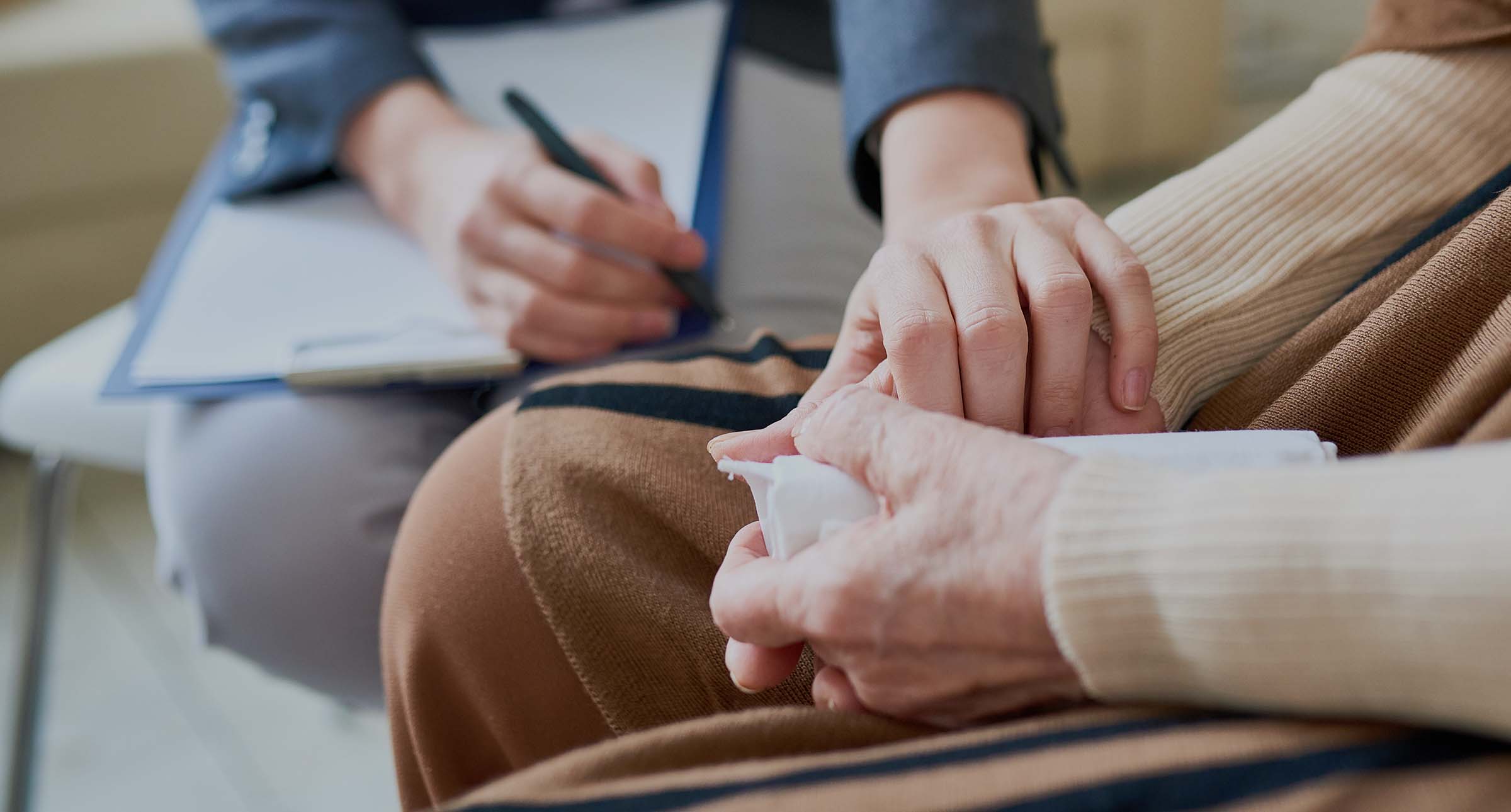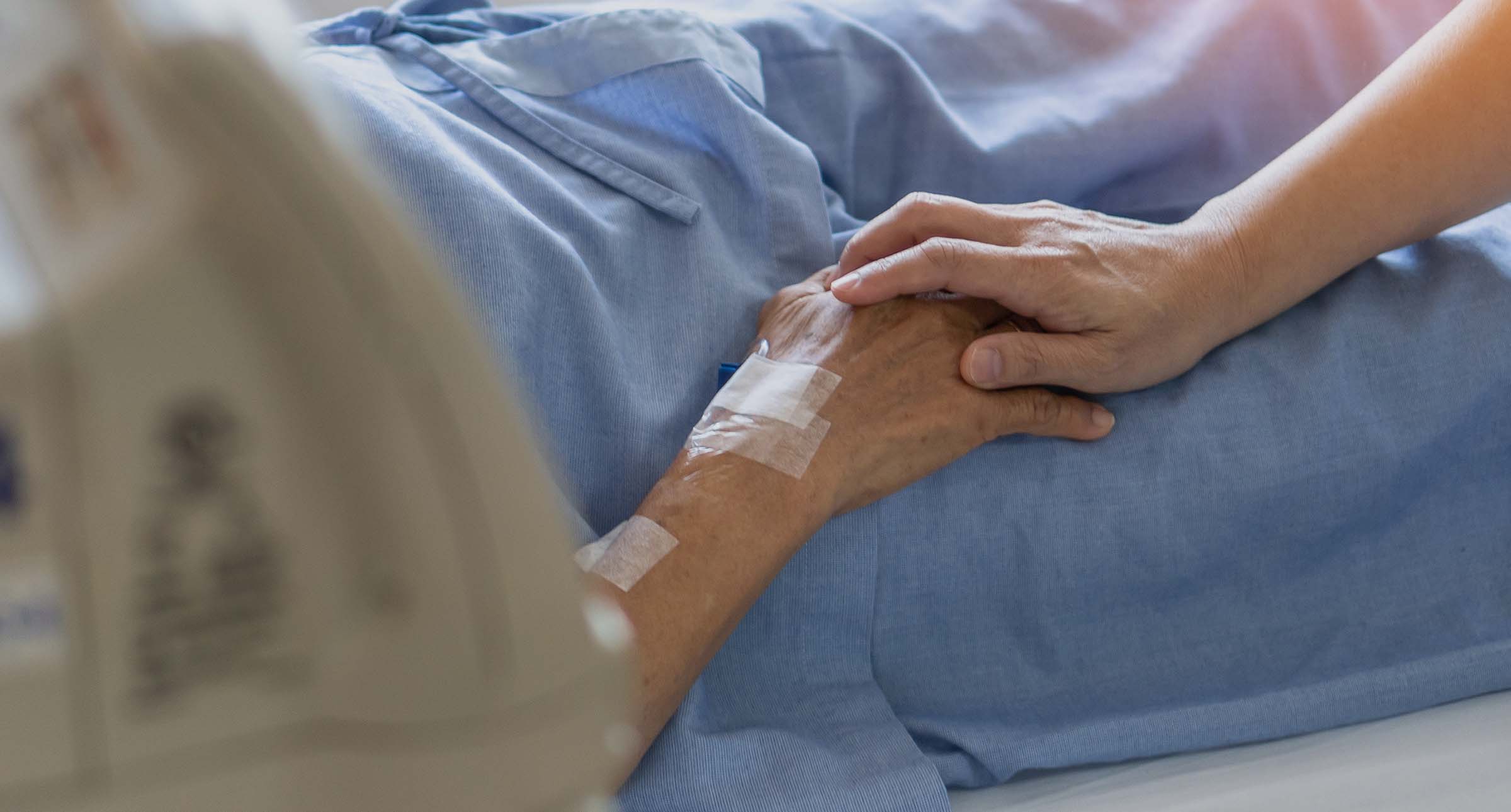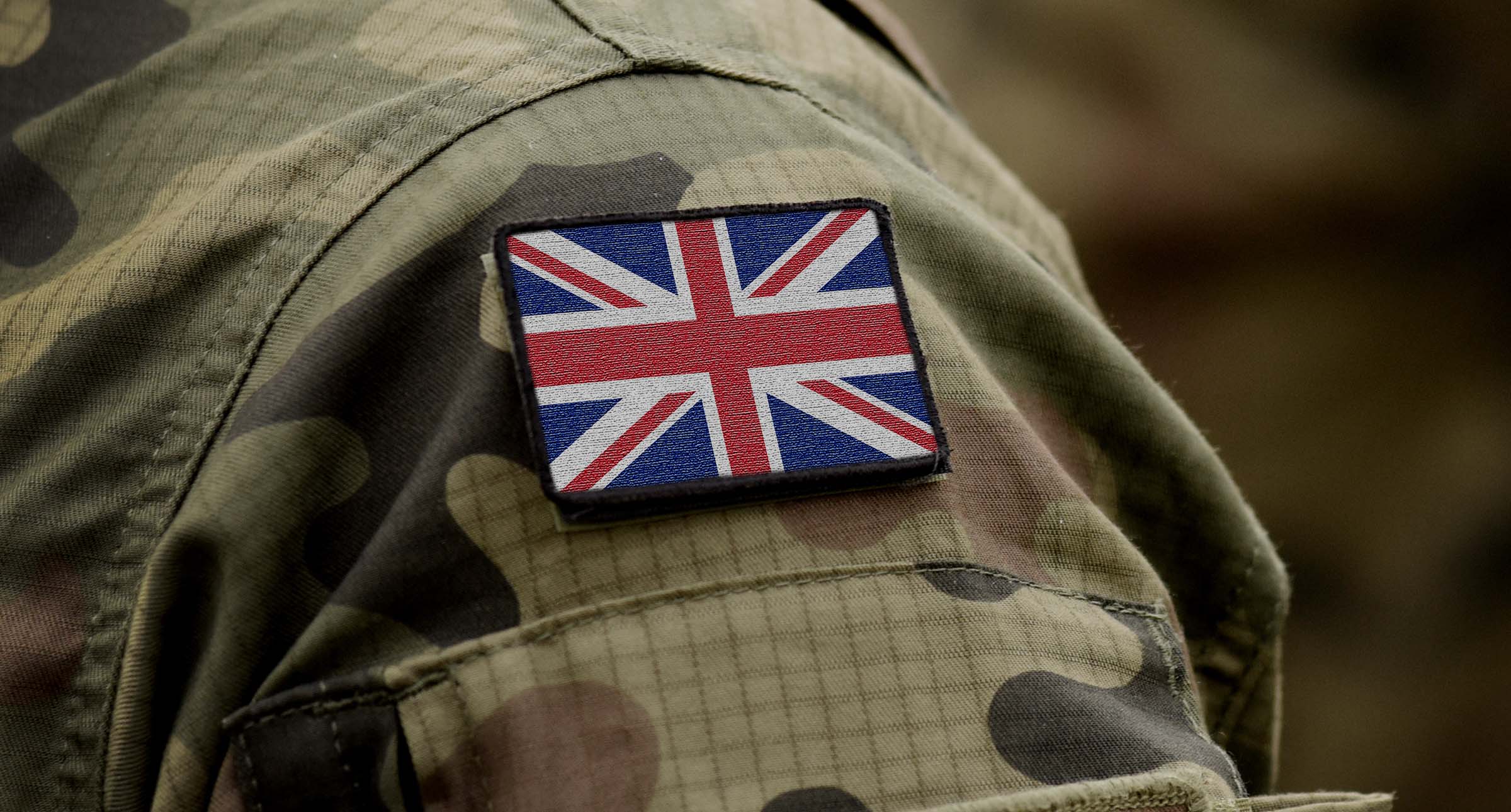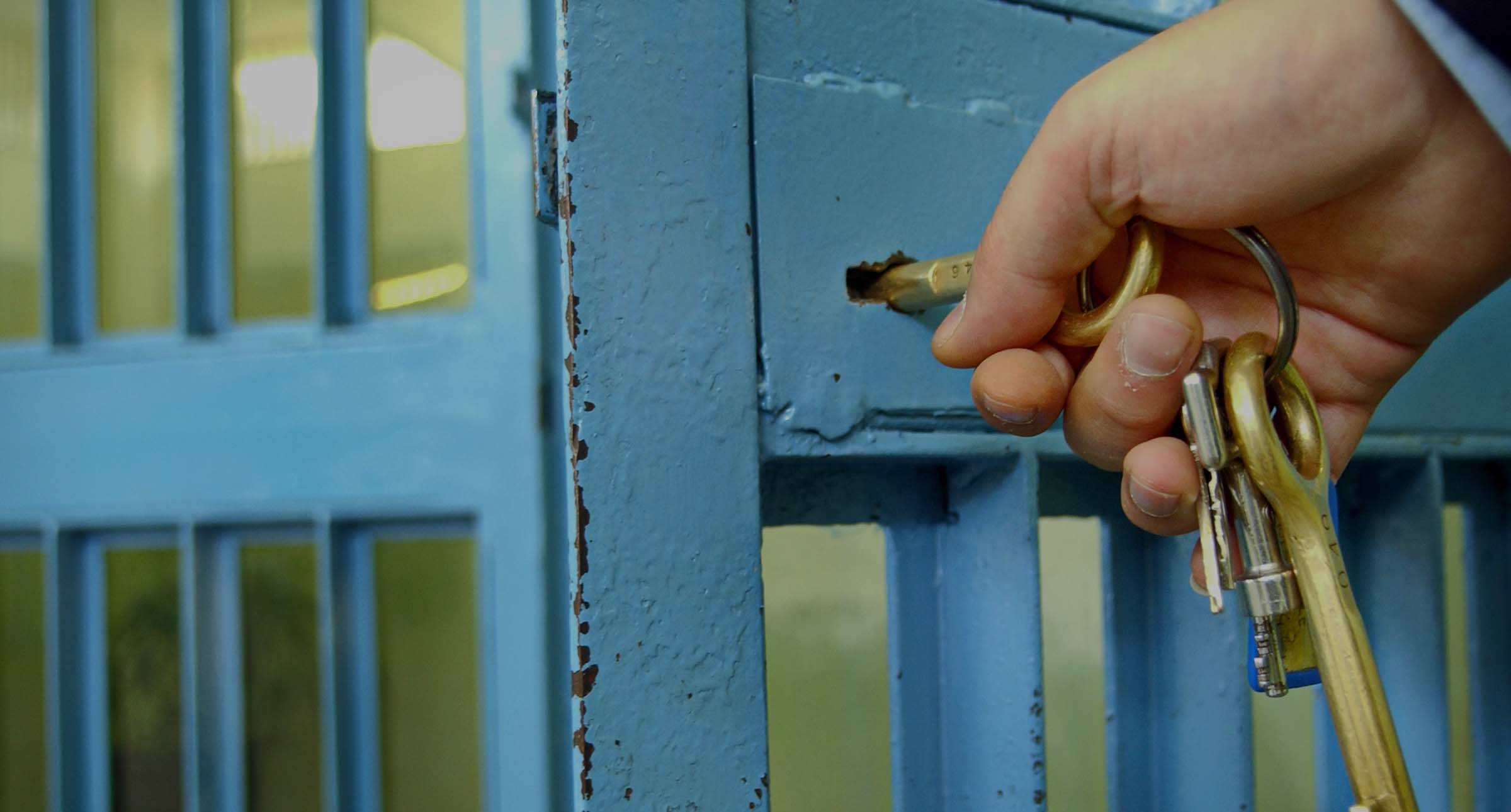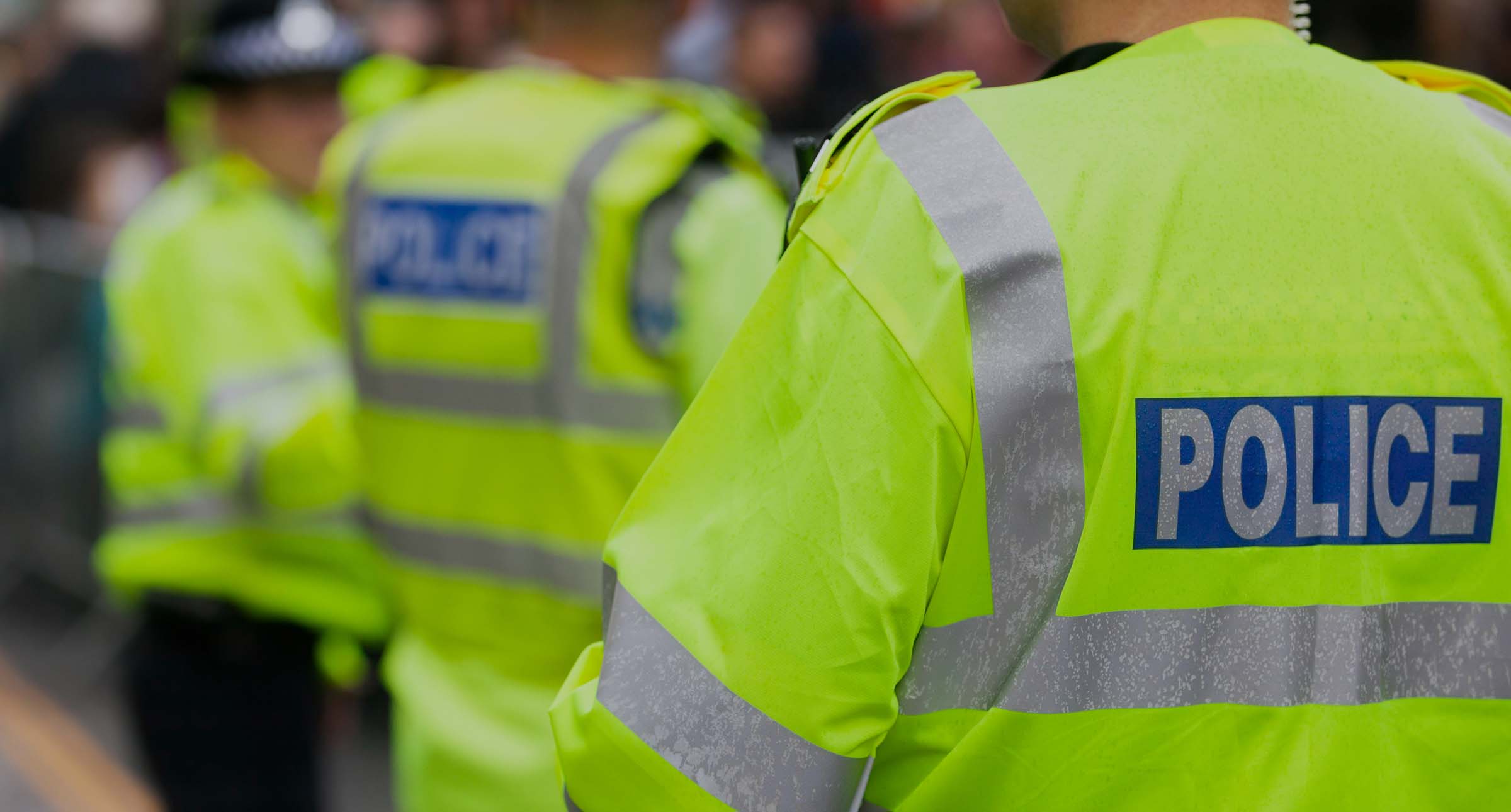

What to do when someone dies
A guide to everything you might need to consider when you experience a bereavement.
Here to help explain the process
We are sorry that you have had cause to visit this page but we hope it will help you with some of the administrative and practical tasks that are necessary after a loved one dies.
Please click on any of the following links to be taken to the relevant section:
First steps following a bereavement: a checklist
After a loved one dies, it is difficult to know what you need to do or who you need to contact. Here we help you understand the initial steps you should take.
Contact the GP or hospital about obtaining the Medical Certificate of Cause of Death. You may also need to contact the Coroner’s Office in certain circumstances, such as where you have a concern about how a loved one died. You can find the Coroner for your area here or by contacting the local authority where the person died.
Notify the Registrar of the death and complete the appropriate forms. You need to do this within 5 days of the death (including weekends and bank holidays). You can do this online or at the appropriate Register Office. You can go to any Register Office but, if you go to the Register Office local to where the person died, they will be able to give you the documents you need on the day, otherwise you may need to wait a few days to receive them in the post. You can find your local Register Office by looking online or by calling the local authority.
You should call ahead to the Register Office to book an appointment.
To register the death you will need the Medical Certificate (see Step 1 above) and, if the death was reported to a Coroner, you will need permission from the Coroner to register the death. You will need to be able to tell the Registrar:
- the person’s full name and any previous names,
- their date and place of birth,
- their address,
- their occupation,
- any benefits or state pension they were receiving, and
- the name, date of birth and occupation of any surviving spouse or civil partner.
It is helpful to also bring to the Register Office the person’s birth certificate, Council Tax bill, driving licence, marriage of civil partnership certificate, passport or proof of address if you have them.
When you have registered the death, you will get a ‘certificate for a burial’ to give to the funeral director, or an application for cremation which you need to complete and give to the crematorium.
Ensure arrangements are in place to check that the property is secure if it is now left unoccupied and unattended, and to look after any pets.
Contact a funeral director to arrange the funeral service. There is more detailed guidance on arranging a funeral here. We recommend finding a funeral director through the National Association of Funeral Directors (NAFD) or choosing one that has the NAFD kitemark, which is a lion logo, showing that the funeral director is approved for quality of service by the NAFD
Ensure you keep all receipts for arranging the funeral as these may be required when completing a probate application and/or may help to recover fees if there is a related claim for compensation.
Aside from telling family and friends, you should also inform:
- their employer or school
- GP and any other health professionals (including cancelling any outstanding medical appointments)
- Care home or other agencies such as social services
- Banks and building societies (this is important so that money can be frozen in their accounts to protect against fraud)
- Mortgage provider or letting agency
- Buildings and property insurers
- Utility companies including gas, water, electricity and council tax.
- TV, mobile phone or internet providers
- Pension Service of the Jobcentre to cancel any benefits. For more information on this please click here
- the local government office and the electoral register
- HMRC Income Tax Office
- Department for Work and Pensions (DWP)
- DVLA and passport agency
- Any private pension provider
- Post office to arrange re-direction of mail if necessary
- Any memberships they held, e.g. gym or sports clubs
- The local police station if the person who died held a firearms license
The government has a ‘Tell Us Once’ service that lets you report a death to most government organisations in one go. The service will contact HMRC, the Department for Work and Pensions, the Passport Office, the Driver and Vehicle Licensing Agency, the local Council, some state pension schemes and Veterans UK (to cancel any army compensation payments the person received). These agencies will then contact you to discuss the tax, benefits or entitlements of the person who died.
At the time of writing, the Tell Us Once service is not available in Northern Ireland, Brighton & Hove, East Sussex, Eastbourne, Harrow, Hastings, Lewes, Liverpool, Manchester, Medway , Rother or Wealden.
The Registrar will also be able to tell you if the service is available in your area. Alternatively, you can contact the service online or by telephone on 0800 085 7308.
You may wish to consider closing the person’s social media accounts. You will have to contact the social media company directly and each one has a slightly different process.
On Facebook it is possible to choose to memorialise an account, rather than deleting it. This means that it can be left in situ for existing contacts to remember them or share memories.
See their individual websites for more information on the options available to you.
Arranging a funeral
Arranging a funeral is often one of the first things that family or friends will think about. For many it is difficult to know who to contact or where to begin organising a burial, cremation and/or memorial so we set out key information here.
There are very few legal requirements when it comes to funerals. The only requirements are that the death is certified and registered, and that the body is properly disposed of (you have a choice between cremation and burial). Apart from that you can do whatever feels right for you.
When planning a funeral, it can feel like there is a lot of pressure on you and it’s easy to feel overwhelmed. You might feel an expectation that the funeral should take place as soon as possible. Try not to let yourself be rushed by others. There is no a strict timeframe that you need to stick to. Take your time to work out how you want to say goodbye.
There is nothing stopping you managing the funeral arrangements yourself. There is no legal requirement to use the services of a funeral director . Some people find this process very helpful as part of the grieving process and it can often be a cheaper option.
Further information about planning a funeral without the assistance of a funeral director is available from The Natural Death Centre or from your local council cemetery or crematorium. Alternatively, you may with to use a funeral director for only limited aspects of the process, retaining some areas for you/the family to deal with yourselves.
If you choose to use one, a good funeral director can make planning a funeral easier. Some will offer bespoke services which allow you to manage some elements of the funeral. Alternatively, you might decide that you want the funeral director to plan and coordinate the entire funeral.
There are two UK Funeral Trade Associations – NAFD and the SAIF.
Funeral directors who belong to these associations have to follow a Code of Practice which means that they are held to a higher standard. You can also access reviews of funeral directors online that might help inform your decision. Speaking to family and friends is also a useful way of ensuring that you get a funeral director who comes recommended.
A good funeral director will be happy to provide an estimate of costs. Don’t be afraid to ask about the different charges if there is anything you don’t understand. Obtaining estimates from a number of providers will enable you to ensure that you are provided with value as well as quality. There are lots of helpful resources online that will help make the process easier.
If your funeral director provides you with a cost estimate to sign, read through it carefully as it will form part of the contract. Once you’ve signed the contract you will be responsible for paying the funeral director’s fees. Importantly, if you signed the agreement in your own home, you have seven days in which to cancel it.
If your loved one expressed a preference between burial and cremation you might find the choice straightforward. If they did not, you may have to decide yourself. You may wish to consider factors such as whether you wish to have the ashes to keep or to scatter in a special place, or whether you want a burial place to visit, or there may be more practical considerations such as cost and logistics. Cremations and natural burials tend to be more affordable than a traditional burial.
You may also wish to consider a direct cremation or burial. Direct funerals mean that the deceased is buried or cremated without mourners being in attendance. This is less costly than a formal funeral service and people often choose to hold a celebration at a later date.
In addition to traditional funerals or cremations, there are a number of other ways families can choose to use their loved ones’ ashes to celebrate or memorialise them. These include using the ashes to grow a memorial tree, using them in fireworks, to make jewellery or items such as bird baths. If you wish to scatter your loved ones’ ashes there are a few rules to follow, including that if you scatter them on land then you are likely to need permission from the landowner.
There are a number of different sources of funding for funeral expenses:
- Prepaid Funeral Plan – your loved one may have taken out a prepaid funeral plan in their lifetime which may cover some, or all, of the funeral costs. If you believe the person had a funeral plan but you cannot find the documentation, you can use the Funeral Planning Authority’s ‘trace a plan’ tool to try and locate it.
- The deceased’s estate – a bank will often release money if you provide a copy of the death certificate and the funeral bill.
- Insurance policies – check whether the deceased or their family have an insurance policy that will cover the funeral expenses.
- Pension – a pension fund may be available to cover some of the costs
- Children’s Funeral Fund – if a child under 18 has died, the government has a special fund to provide financial support to all parents to pay for burial or cremation expenses, no matter a family’s income. The fund can be accessed by your funeral director, or directly by a family online.
Ensure you keep all receipts for arranging a funeral as these may be required when completing a probate application and/or if there is any related claim for compensation.
If you’re struggling to pay for the funeral there are organisations that might be able to help:
- Funeral Expenses Payment from the Department of Work and Pension – you may be eligible to apply for government funding to cover some of the cost of a funeral if you or your partner is in receipt of qualifying benefits, such as Universal Credit, Housing Benefit, Child Tax Credit or Pension Guarantee Credit. You can apply for the Funeral Expenses Payment within 6 months of the funeral, or prior to the funeral if you have an invoice (not quote) from a funeral director. You can claim for the payment by telephoning the government’s Bereavement Service Helpline on 0200 731 0469
- Trade Unions or other work-associations may provide a grant or financial assistance for a member who has died whilst employed and a member of the union. You can contact the union or association for more information on any benefit they may provide.
- Charities – Turn2us offer a grant finder tool which will help you find charities that might be able to offer financial help.
- You may also be eligible for additional benefits on the death of a loved one which could be used to pay for the funeral, more detail is available here.
Finally, discuss the issue with your funeral director. They might be able to agree a repayment plan that you can afford which would help reduce the financial pressure on you. You may also find our bereavement resources and links to external organisations helpful
Probate and the Will (or where there is no Will)
After a loved one has died, you may need to apply for confirmation of the legal authority to deal with someone’s property, money and possessions (their ‘estate’). This is known as applying for probate.
The process will vary depending on whether or not the deceased had a Will. If they did, then the Executor appointed within the Will is the person who deals with the estate. If they did not have a Will (known as ‘intestate’) then it will fall to a family member, as laid down by the law.
Dealing with a person’s estate is a significant responsibility; in order to carry out a deceased loved one’s wishes exactly as they have set out (if they had a Will) or how the law dictates (if they did not).
Essentially, for most estates, the process will be:
- Valuing the deceased’s estate
- Reporting the value to HMRC
- Applying for probate. This is the process that allows a person to sell or transfer the deceased’s property in accordance with the Will or by strict division according to legislation.
- If the person had a Will, the Executor named in the Will applies for a ‘Grant of Probate’ to begin this process.
- If the person did not have a Will, certain family members can apply for ‘Letters of Administration’ to begin this process.
- Pay any inheritance tax
- Collect together all the deceased’s assets, e.g. the proceeds from the sale of a house, their bank accounts and other savings or bonds
- Pay off any debts of the deceased, such as utility bills
- Make a record of all the assets and how they are going to be distributed
- Reimburse any expenses paid during the estate administration
- Distribute the assets to the people named in the Will
Benefits, work and money
When a spouse or civil partner dies, it may impact your financial situation in a number of ways.
You will need to contact the government to notify them of the death. This may mean that they stop certain benefits which you become ineligible for, but you may become eligible for additional financial government support to assist you during this time. There may also be an insurance payment or compensation available to you.
After the death of a loved one you will need to contact the government so that any benefits that the deceased was receiving, or any benefits you were receiving as a carer, are stopped or re-calculated.
In England and Wales, you can do this by contacting the government’s “Tell Us Once” service either online or by telephone on 0800 085 7308. This service isn’t available in all areas yet and so you may need to contact the DWP Bereavement Service on 0345 606 0265 instead.
If you are bringing up someone else’s child following the death of their parent, you may be eligible for Guardian’s Allowance in addition to Child Benefit. You should contact the Guardian Allowance Unit to find out how to claim on 0300 200 3101.
If you or your partner is in receipt of qualifying benefits, you may be eligible for a Funeral Expenses Payment from the Department of Work and Pension to assist you in covering the cost of some of the funeral for a loved one.
You or your partner needs to be in receipt of certain benefits, which includes Universal Credit, Housing Benefit, Child Tax Credit or Pension Guarantee Credit. You can apply for the Payment within 6 months of the funeral, or prior to the funeral if you have an invoice (not quote) from a funeral director. You can claim for the payment by phone to the Bereavement Service Helpline on 0200 731 0469
Your loved one may have had access to a ‘death in service’ benefit with their employer or may have taken out life insurance.
A death in service benefit is provided by some employers and will often pay out a lump sum if someone dies whilst in employment, even if the death is entirely unrelated to the employment itself. It may be linked to the company’s pension or the individual’s salary. You should contact the individual employer to check whether any benefit is owed to a family member or the person’s estate. Often the person will have nominated someone to benefit from the scheme or it may go to a trust who then decides who the payment will be made to.
Alternatively, or in addition, the deceased may have had life insurance (either attached to a mortgage or separately). If you know they had a policy, but cannot find the policy documents or are unsure which insurance provider to contact, you should first check their bank statements for regular payments to insurers or an insurance broker.
It is sensible to notify the insurers of the death as soon as possible and to provide them with the death certificate so that they can begin to process any claim.
The Bereavement Support Payment comprises an initial lump sum with further support payments over 18 months. It is payable to those under state pension age (which depends on the year you were born and which you can check on the government website whose partner paid National Insurance contributions for 25 weeks within a tax year (the Department for Work and Pensions will check this for you when you apply for the payment).
If your partner died because of an accident at work then the eligibility criteria is more relaxed; they only required that you are under the state pension age.
The amount you could receive will depend on whether or not you have children and how soon after the death you apply. You should apply within 3 months of the death to receive the full amount you are eligible for.
If you are getting Bereavement Support Payment it will not affect your other benefits for a year. After that, some means-tested benefits will be re-assessed.
You can find out more about this support from the government website where you will need to download a form, or you can phone or visit your local Jobcentre Plus.
If you were bereaved before 6 April 2017, there are different benefits – Bereavement Allowance and / or Widowed Parent’s Allowance – that are available instead of the Bereavement Support Payment. More information is available from the UK Government website.
You may need to take time off work following the death of a loved one, whether to take time to grieve, to care for family members and/or to organise or attend a funeral or cremation. Your employer may have a Staff Handbook or Leave Policy that states whether they provide paid compassionate leave for bereaved employees and how many days they allow. Alternatively, you may be able to discuss with your employer whether you can take unpaid leave or annual leave during this time.
From April 2020, a new law means that parents of a child under 18 or a child who has been stillborn after 24 weeks of pregnancy will have a legal right to two weeks’ paid leave from work. If you are the parent of a baby who died either before or during birth, then you are entitled to the same maternity leave that you would otherwise have had. This could also include maternity pay or maternity allowance depending on your employment.
Compensation may be available in certain circumstances, such as where the death occurred as a result of substandard care or other negligence.
The specific amount payable varies from case to case but can be significant, This can include money for the funeral expenses, loss of income and additional expenses which arise as a result of their death. Please see here for more information.
In addition to the above, certain charities may be able to assist with financial hardship after a loved one dies. Please see our resources section for more information.
Concerns about the circumstances of a death?
You may have concerns that your loved one’s death could have been avoided, for example if they had received better treatment from their hospital GP, care home, prison or other employer etc.
If you are concerned about how your loved one died you should report the death to your local coroner as soon as possible, as they may decide to hold an inquest to investigate the cause of death. You can find the Coroner for your area here or by contacting the local authority.
Alternatively, it may be that you are contacted by the Coroner’s Office to notify you that an inquest will be held, without you making them aware.
You may want to seek legal advice from a solicitor specialising in Inquests, who can support you through the process, often at no cost to you.
Even where an inquest isn’t taking place, you may want to investigate the circumstances of your loved ones’ death.
Bringing a claim against an employer, hospital, GP, care provider or state body such as the police or prison service, can allow you to investigate the circumstances around a death and potentially claim compensation if the death was caused or contributed to by negligence.
Bringing a claim can also mean that the same negligent treatment or care isn’t provided to someone else. You may receive an apology and be told what lessons have been learnt or changes made to services since your loved one died to avoid the same thing happening to others.
Instead of bringing a claim, or before bringing a claim, you may wish to make a formal complaint or request that an investigation is undertaken by whoever’s care the deceased was under. This could be, for example, a complaint to the Care Quality Commission if the death took place in a care home or supported living facility, a hospital Trust if the death took place either in the hospital or when someone was under the care of a community health team, or the Independent Office for Police Conduct (IOPC) for deaths related to police contact.
Whilst you can do this yourself, you may wish to contact a specialist lawyer who can advise you on the best way to approach the complaints process.
When a child dies
The death of a child is truly devastating and it can be difficult to see a future past the grief. We hope that this section of our website helps you in terms of some of the practical arrangements that you will need to take as well as to ensure you receive the support you need.
There are a number of resources, charities and support groups available to help you following the death of a child, many of which offered tailored support, such as for stillbirth, infant loss, suicide or cancer.
Registering a death
One of the first things you will need to do is speak with the hospital or the GP to obtain the Medical Certificate of Cause of Death. You may also need to contact the Coroner’s office in certain circumstances. For all children who have died before they reach 18, including for babies who are stillborn after 24 weeks of pregnancy, a parent will need to register the death. You can do this either online or at your local Register Office. This section of the government’s websites provides information on how to find your local Register Officer and if you can use the ‘Tell Us Once’ service to register the death online.
Memorials and funerals
When planning a funeral, it can feel like there is a lot of pressure on you and it’s easy to feel overwhelmed. You might feel an expectation that the funeral should take place as soon as possible. Try not to let yourself be rushed by others. There is no a strict timeframe that you need to stick to. Take your time to work out how you want to say goodbye.
There is no legal requirement to use the services of a funeral director but if you choose to use one, we recommend that you choose a funeral director registered with the National Association of Funeral Directors.
You will have to choose whether to have a burial or cremation. You may wish to consider factors such as whether you wish to have the ashes to keep or to scatter in a special place, or whether you want a burial place to visit, or there may be more practical considerations such as cost and logistics. Cremations and natural burials tend to be more affordable than a traditional burial.
Paying for a funeral
The government has a special fund to financially support all parents of a child who has died under the age of 18 and so, no matter your income, you will not have to pay for a burial or cremation. Other funeral expenses, such as a coffin or casket may also be paid for by the government. This fund is accessed either by your funeral director (if you are using one) or you can make a claim online within six months using the government website.
There are a number of organisations that will need to be informed of the death:
- Any school, day centre, nursery or care group they attended
- Their GP, dentist and other health professionals
- The Child Benefit Office as they will need to re-assess child benefit and child tax credit
- Passport Agency
- Banks and building societies if they had a current or savings account.
In the case of older children, there may be other considerations such as:
- Cancelling any memberships they had to sports clubs or gyms
- Notifying their mobile phone provider and cancelling related subscriptions such as Netflix, Spotify, Apple Music etc
- Notifying the DVLA if they held a driving license
- You may also wish to consider closing a child’s social media account if they had one. Some sites offer the option to memorialise the account rather than shutting it down fully.
From April 2020, a new law means that parents of a child under 18 or a child who has been stillborn after 24 weeks of pregnancy will have a legal right to two weeks’ paid leave from work.
If you are the parent of a baby who died either before or during birth, then you are entitled to the same maternity leave that you would otherwise have had. This could also include maternity pay or maternity allowance depending on your employment.
A few weeks or even months after a child has died, you may be contacted by your local authority’s Child Death Overview Panel (CDOP). This is a group that is convened in each local authority to review the deaths of every child in their area to try and understand what has happened and whether any lessons can be learned. The meetings are held in private so you will not be able to attend, but you may be requested to provide information or highlight any concerns that you have so that they can be raised during their meeting.
A coroner will call an inquest to determine the cause of death of a baby or child if this is not apparent from the medical history or the post mortem, or if there are any unanswered questions surrounding the circumstances of the death. If you are concerned about how your child died then you should report this to your local coroner as soon as possible as they may then decide to hold an inquest.
An inquest can be a crucial investigation to ascertain the circumstances of someone’s death but can be a daunting prospect, particularly whilst grieving for your child. We recommend seeking legal advice at an early stage if you are notified of an inquest, or if you have any concerns about the circumstances of your child’s death and believe an inquest should be called. Sometimes it is important that particular steps are taken very quickly following the death and so we would urge you to speak to someone as soon as possible, as this can have a bearing on the evidence which is obtained.
You can find the Coroner for your area here.
Sadly sometimes when a child dies it may have been a result of someone else’s negligence, for example through poor medical care, a road traffic incident or another type of accident.
A claim for compensation can be brought when a child has died as a result of negligence. A settlement can compensate you for any financial losses you have suffered, such as for funeral expenses, for loss of earnings suffered for time off work or for counselling treatment you require as a result of what has happened, and can be a way of investigating the events leading up to the death and seeking answers to any questions you have.
Generally, you can bring a clinical negligence claim within three years from the date of death but this deadline is sometimes as short as one year in some cases so do get in touch with a solicitor as soon as possible if you have concerns about the circumstances of death or the quality of care provided to your child.
For many parents dealing with the grief of losing a baby, it may seem hard to contemplate making a complaint. The way each parent will deal with his or her grief and experience will vary greatly and there is no right or wrong path to take. It is important to bear in mind that there is support available as noted above.
Some parents may want to make a complaint about the treatment their baby received in order to obtain some answers as to what went wrong and the below is intended to provide parents with more information about processes available to them and what to expect.
Debrief meetings – what to expect and what to consider
Many maternity units now offer what is called a “debrief meeting” after a birth with the clinicians involved in your care, alongside a senior midwife or consultant.
The purpose of the debrief meeting is to allow you to express your concerns about the birth and what you felt went wrong, and to hear the response of the NHS staff who were responsible for caring for you and your baby during that time. This may not bring you full resolution but should help you to feel that your concerns and feelings about the birth have been listened to and heard.
The advice we have heard from our clients about these meetings includes:
- ask for a copy set of your maternity records (these should be provided for free) so you can review your records and refresh your memory;
- write down your story, feelings and questions in advance so you don’t forget to express and ask on the day;
- bring a friend or loved one to the meeting with you for support and to write down notes for you;
- ask the hospital for a letter after the meeting which summarises what was discussed and the conclusions reached.
All medical staff are now subject to a legal Duty of Candour. This means that they must be open and honest with you when explaining what happened during the birth, and should apologise if there was a mistake.
Making a formal complaint
You may or may not wish to have a debrief meeting with the medical staff. Whether you do or don’t is a personal decision and doesn’t preclude you from making a formal written complaint to the Hospital Trust involved in the birth, which is a separate process.
You can engage the services of the Patient Advice and Liaison Service (PALS) in making a complaint. Please see our guide on making complaints for more detailed information on how to do this, however the main advice is to set out a brief, clear chronology of what happened followed by a clear list of complaints you have. If you send in a well-written complaint, you are likely to receive a better quality of written reply.
Many hospitals stopped accepting complaints or requests for debrief meetings during the peak period of the Covid-19 pandemic; however this system should now have re-opened in most hospital Trusts.
Undertaking a debrief or complaint may seem daunting at first, particularly when dealing with the loss of a baby and the very raw emotions of that loss. It is therefore important to ensure you are receiving appropriate support from your GP and the midwifery team. Help is also available from charities such as those listed here.
Inquest and bereavement resources
Here we help you to find the information you need when someone close to you has died, whether you’re looking for guidance on what to do, how to process an inquest, or how to handle a bereavement.
- Government guidance on the practical steps to take after a loved one dies including advice on how to register the death and arrange the funeral. This guide includes information on why a death might be reported to a coroner and details about what could happen next.
- Guidance from the Money Advice Service on the organisations you should inform after someone dies.
INQUEST
INQUEST provides specialist support and advice for bereaved people following a state related death, with the influence to achieve change in legislation, policy and practice.
T: 020 7263 1111 (option 1)
W: https://www.inquest.org.uk/
Twitter: @INQUEST_ORG
Rethink Mental Illness
Rethink Mental Illness provides support to people affected by mental illness. It gives advice in relation to the inquest process, the role or the coroner and post-mortem examinations.
T: 0300 5000 927
https://www.rethink.org/carers-family-friends/what-you-need-to-know/inquests/
Twitter: @Rethink_
The Coroner’s Courts Support Service
The Coroner’s Courts Support Service offers emotional support and practical help to bereaved families, witnesses and others attending an Inquest at a Coroner’s Court.
T: 0300 111 2141
W: https://coronerscourtssupportservice.org.uk/
Twitter: @CCSSOrg
AvMA (Action Against Medical Accidents)
AvMA offers self-help guides containing clear explanations of the inquest procedure. They can sometimes offer expert representation at an inquest where there are reasonable grounds to believe that the death occurred as a result of medical care.
T: 0845 123 2352
W: https://www.avma.org.uk/help-advice/inquests/
Twitter: @avmauk
Bereavement Advice Centre
Bereavement Advice Centre provides a free helpline and web-based information service. It gives practical information, advice and signposting on the issues and procedures that face us after the death of someone close. Bereavement Advice Centre gives basic advice in relation to inquests.
T: 0800 634 9494
W: https://www.bereavementadvice.org/topics/death-certificate-and-coroners-inquest/
Samaritans
Samaritans is a telephone service providing support for people in difficult circumstances. You don’t have to be suicidal to contact the Samaritans.
T: 116 123
W: https://www.samaritans.org/
Twitter: @samaritans
Cruse Bereavement Care
Cruse Bereavement Care offer support, advice and information to children, young people and adults when someone dies. The charity has a number of specialist projects providing assistance to those affected by military bereavement and bereavement through drugs and alcohol or suicide. Face-to-face, telephone, email and website support is available.
T: 0808 808 1677
W: https://www.cruse.org.uk/ and https://hopeagain.org.uk/ (specifically for children and young people)
Twitter: @crusecare
The Loss Foundation
The Loss Foundation provides help following the loss of a loved one to cancer. It organises free support groups in London which are run by psychologists and other professionals. Therapy groups, student groups, weekend retreats and social events are also available through The Loss Foundation.
T: 0300 200 4112
W: https://www.thelossfoundation.org/
Twitter: @LossFoundation
WAY Widowed & Young
WAY is a support group for people aged 50 or under when their partner died. It is a peer-to-peer support group run by volunteers with personal experience of being bereaved at a young age. WAY offer social groups and a members-only website to meet others who have been widowed at a young age.
W: https://www.widowedandyoung.org.uk/
Twitter: @WidowedAndYoung
Dying Matters
Dying Matters aims to help people talk more openly about dying, death and bereavement, and to make plans for the end of life. It manages a directory of services for the people in the last years of life, their families, carers and friends. There are a range of resources to assist with conversations about death on the website.
T: 0800 021 44 66
W: https://www.dyingmatters.org/
Twitter: @DyingMatters
SOBS (Survivors of Bereavement by Suicide)
SOBS supports adults bereaved by suicide. It offers a helpline, email assistance, local support groups and retreats. The services are run by volunteers who have been bereaved by suicide.
T: 0300 111 5065
Twitter: @SOBScharity
Group B Strep Support
Group B Strep Support operates a helpline providing general information and guidance on group B Strep. It is working to stop group B Strep infections, including meningitis, in babies.
T: 01444 416 176
Twitter: @GBSSupport
Marie Curie
Marie Curie offers support to people suffering from terminal illnesses and to their families. It operates a helpline, an online community and publishes a range of resources online. Marie Curie also provides information on nursing and hospice services.
T: 0800 090 2309
W: https://www.mariecurie.org.uk/
Twitter: @mariecurieuk
Bereavement UK
Bereavement UK operates a support forum and a chat room where people who have lost loved ones can support each other.
W: https://www.bereavementuk.co.uk/
Jessie May
Jessie May is a Bristol-based charity providing nursing care at home for children and young people with life limiting conditions who are not expected to live past the age of 19.
T: 0117 958 2174
W: https://www.jessiemay.org.uk/
Twitter: @jessiemaytrust
The Good Grief Trust
The Good Grief Trust supports all bereaved people in the UK. It provides guidance to local services and a number of online resources.
Twitter @goodgrieftrust
The Grief Journey
The Grief Journey provides education, community training and resources.
Twitter: @GriefJourneyUK
Leeds Suicide and Bereavement Service
Leeds Suicide and Bereavement Service supports people who have been bereaved by suicide in Leeds. It offers individual peer support, group peer support, family support and counselling. It also arranges annual events and memorials.
T: 0113 3055803
Twitter: @LeedsSBS
Care for the Family
Care for the Family aims to promote strong family life and help those who face family difficulties, including bereavement. Through online resources they try to provide help and practical support.
T: 029 2081 0800
W: https://www.careforthefamily.org.uk/
Twitter: @Care4theFamily
Suicide Bereavement UK
Suicide Bereavement UK conducts suicide bereavement research and provides consultancy on supporting those affected.
T: 01706 827 359
W: https://suicidebereavementuk.com/
Twitter: @SBUK11
SAMM (Support After Murder & Manslaughter)
SAMM offers support for families bereaved by murder and manslaughter. The helpline volunteers are specially trained and have been bereaved in this way. SAMM also organises retreats for the bereaved.
T: 0121 472 2912
BEAD (Bereaved through Alcohol and Drugs)
BEAD provides assistance to those bereaved through alcohol and drugs. There are useful resources on the website. One-to-one and group support are also offered.
T: 0808 808 1677
E: [email protected]
W: https://www.beadproject.org.uk/
Specialist bereavement support after the death of a child
Child Bereavement UK
Child Bereavement UK supports families when a baby or child of any age dies or is dying. It also provides assistance when a child is facing bereavement. Alongside this work, Child Bereavement UK works to educate professionals to help them meet the needs of grieving families.
T: 01494 568 900
W: https://childbereavementuk.org/
Twitter: @cbukhelp
Together for Short Lives
Together for Short Lives offers support to families caring for seriously ill children. It aims to support children’s palliative care services. Assistance is available via the helpline and resources on the website.
T: 0808 8088 100
W: https://www.togetherforshortlives.org.uk/
Twitter: @Tog4ShortLives
Bliss Baby Charity
Bliss Baby Charity offers emotional and practical support for families with premature or sick babies. It provides face-to-face, phone and email support. Support from people with similar experiences is also available on the Bliss message board.
T: 0808 801 3022
Twitter: @Blisscharity
SANDS (Stillbirth and Neonatal Death Charity)
SANDS operate through the UK and support anyone affected by the death of a baby. It operates a helpline, online message boards and a range of resources. SANDS has a UK-wide network of support groups.
T: 0808 164 3332
Twitter: @SandsUK
TCF (The Compassionate Friends)
TCF is a charitable organisation of bereaved parents, siblings and grandparents that provide support to similarly bereaved family members who have suffered the death of a child. Assistance is available through the helpline or online.
T: 0345 123 2304
Twitter: @saytheirname
Baby Loss Awareness
Baby Loss Awareness Week is held annually from 9 to 15 October and is a collaboration between charities in the UK. It provides an opportunity for bereaved family and friends to commemorate the lives of babies who died during pregnancy, at or soon after birth and in infancy.
T: 020 3897 6092
W: https://babyloss-awareness.org/
Twitter: @BLA_Campaign
Life After Loss
Life After Loss helps anyone affected by the loss of a baby. Support is available through an online forum. There are a number of local support groups in Northern Ireland and one in Warrington.
W: https://www.lifeafterloss.org.uk/site/
Twitter: @lifeafterloss
The Lullaby Trust
The Lullaby Trust aims to reduce the number of SIDS deaths and support bereaved families. Support is available by phone or email. The Lullaby Trust also provides a Befriender service which connects people with others who have had similar experiences.
T: 0808 802 6868
W: https://www.lullabytrust.org.uk/
Twitter: @LullabyTrust
Child Death Helpline
Child Death Helpline offers a confidential, safe environment within which the caller can talk openly about the death of a child of any age. It aims to support anyone affected by the death of a child including parents, grandparents, siblings, family members, friends and involved professionals.
T: 0800 282 986
W: https://childdeathhelpline.org.uk/
Twitter: @ChildDeathHelp
The Miscarriage Association
The Miscarriage Association is there to support anyone who has been affected by miscarriage, molar pregnancy or ectopic pregnancy. In particular, they have a helpful factsheet on how to stop targeted advertising that may cause distress after the loss of a pregnancy.
Winston’s Wish
Winston’s Wish was the first childhood bereavement charity in the UK. It provides support across the UK for bereaved children and their families. Specialist resources are available for those bereaved through serious illness, homicide, suicide and the military. Winston’s Wish runs local drop-in services across the South West as well as online and telephone support.
T: 08088 020 021
W: https://www.winstonswish.org/
Twitter: @winstonswish
The Grief Encounter
The Grief Encounter provides free services and support to bereaved children, young people and their families. Among the services available are e-counselling and specially created Grief Relief Kits designed to facilitate children’s grieving.
T: 020 8371 8455
W: https://www.griefencounter.org.uk/
Twitter: @griefencounter
Balloons Charity
Balloons works with pre and post bereaved children, young people and their families in Exeter, Mid and East Devon. One-to-one support is available alongside the helpline. Balloons also organises activity days and family events.
T: 01392 826 065
W: https://balloonscharity.co.uk/
Twitter: @fund4balloons
Childhood Bereavement Network
Childhood Bereavement Network is a bub for those working with bereaved children, young people and their families. There are resources available on the website to assist anyone supporting a bereaved child.
W: https://www.childhoodbereavementnetwork.org.uk/
Twitter: @CBNtweets
SeeSaw Charity
SeeSaw Charity support children in Oxfordshire when a parent or sibling has died. It offers face-to-face support for children and telephone consultations for concerned parents. Home visits are also available.
T: 01865 744 768
Twitter: @SeeSawCharity

